Mount Fuji Crisis Forcing Crackdown to Implement Climbing Fee and Visitor Cap
Japan’s iconic Mount Fuji will soon implement new measures to help preserve the natural wonder and improve safety for climbers.
The Yamanashi prefectural government has announced that starting July 1, 2024, climbers will be required to pay a ¥2,000 fee to ascend the mountain during the summer hiking season.
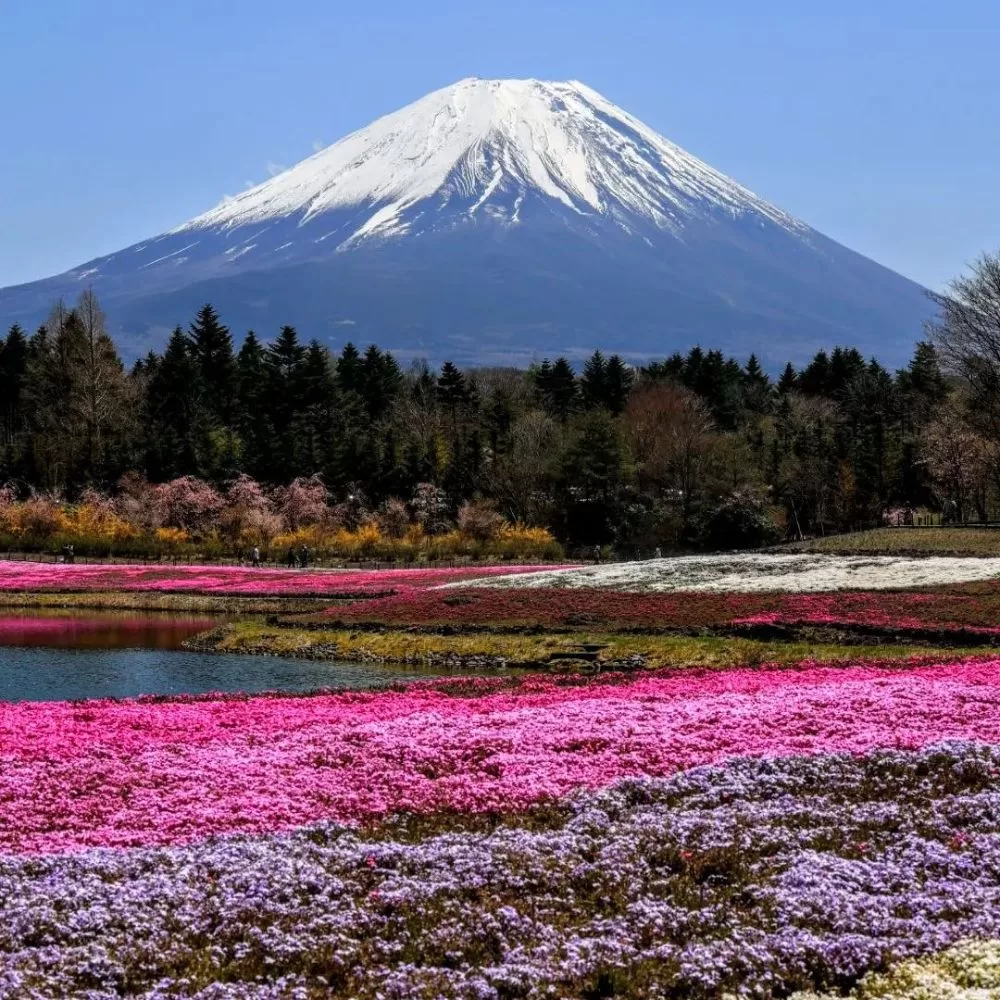
Additionally, a strict daily limit of 4,000 climbers will be enforced on the popular Yoshida trail.
This move comes after increasing concerns over crowding, littering, and unprepared climbers endangering themselves and others on the mountain.
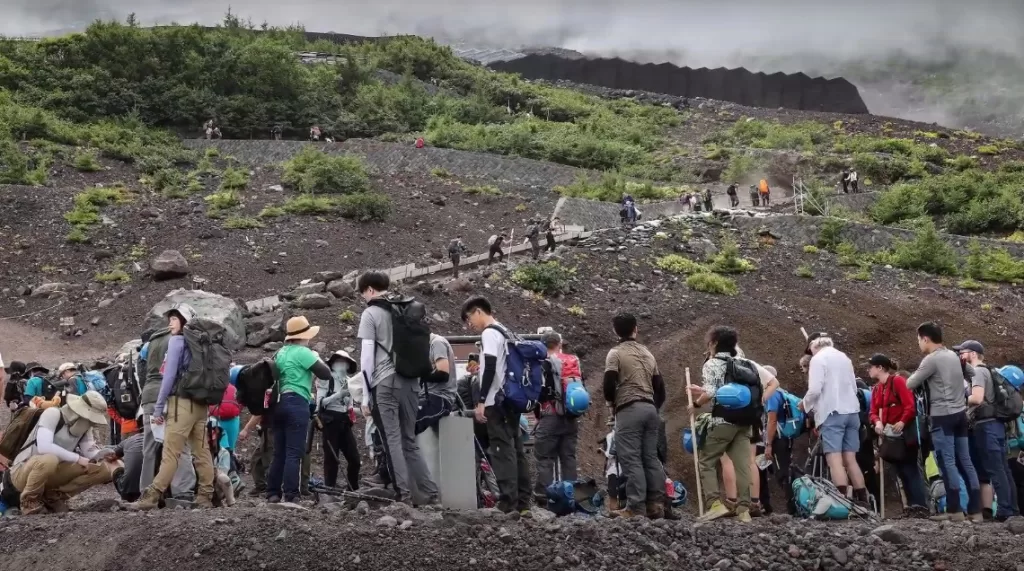
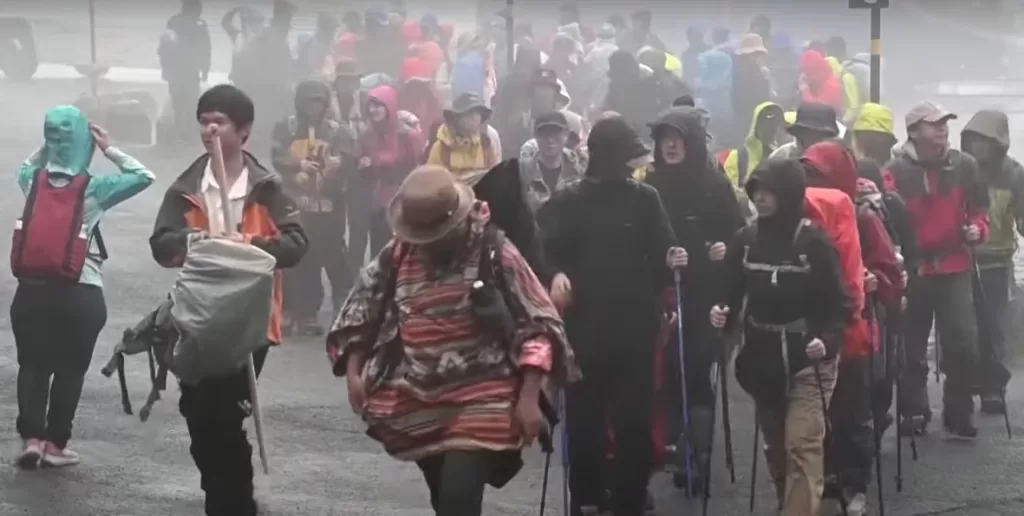
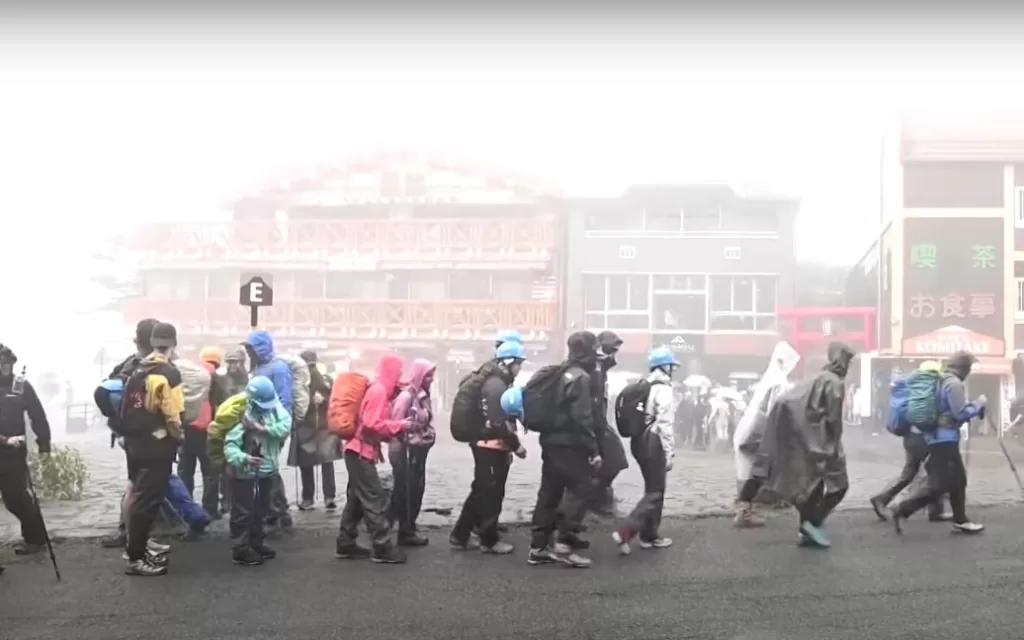
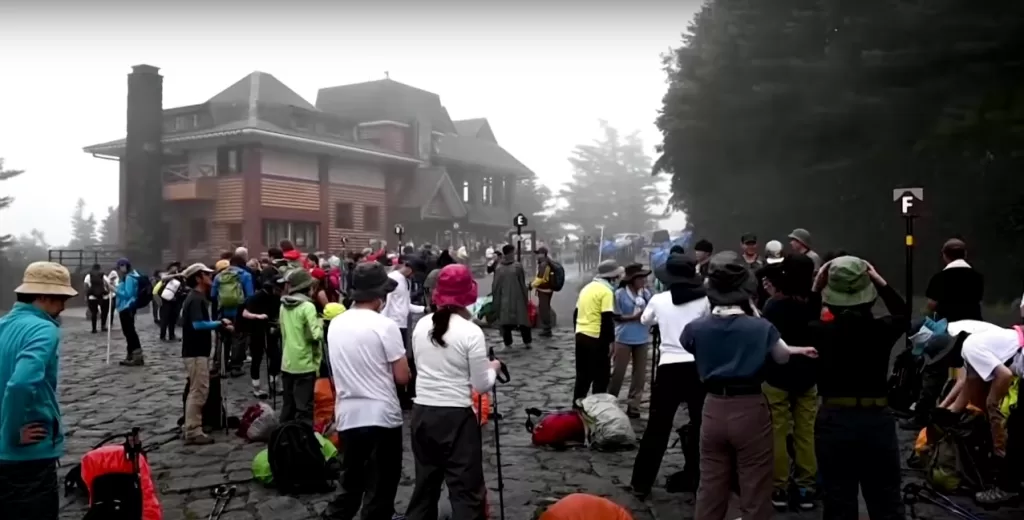
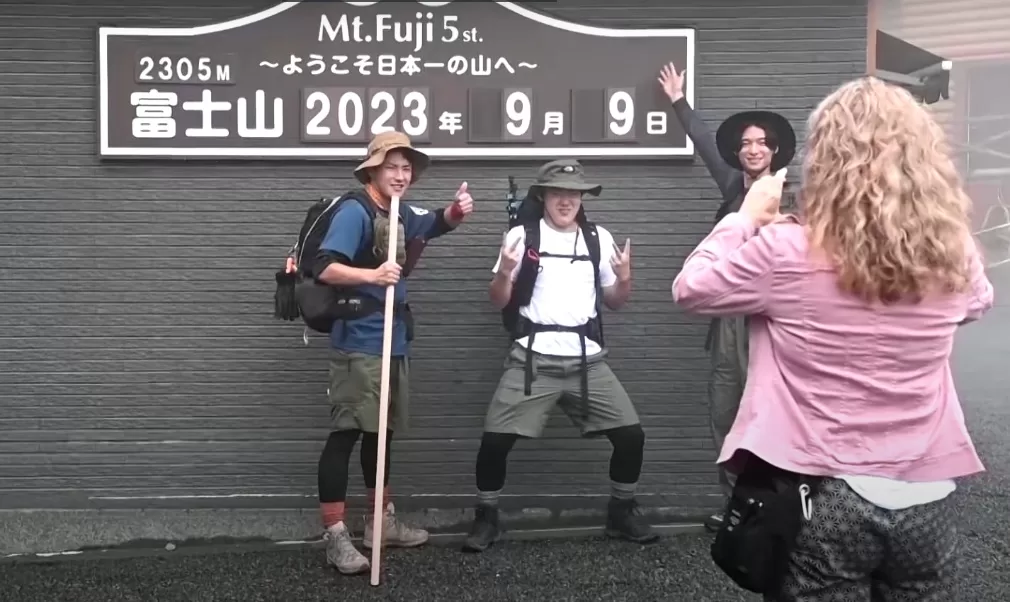
In 2019 alone, an estimated 5 million people attempted to summit the 12,388 foot stratovolcano.
The fees collected will go towards conservation efforts and maintaining the mountain’s trails and facilities.
Overwhelming Crowds Strain Mount Fuji’s Infrastructure
The recent surge in tourists visiting Mount Fuji after Japan reopened its borders has led to extreme overcrowding, pollution and strain on the iconic mountain.
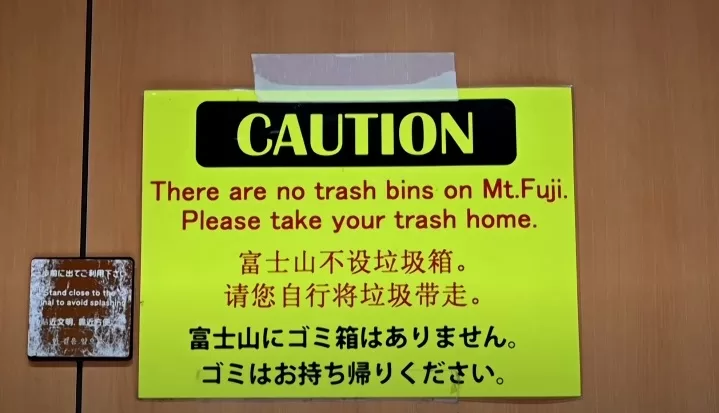
Authorities report issues like overflowing garbage bins, broken and soiled toilets, and excessive litter along the hiking trails.
A major contributor is the easy vehicle access to the mountain’s 5th station base, which saw 4 million visitors this past summer alone – a 50% jump from 2013 when Fuji was named a UNESCO World Heritage site.
The overcrowding problem has been further exacerbated by the trend of “bullet climbing” where climbers attempt to summit and descend in the same day, leading to a 50% spike in rescue requests this year, with 25% coming from foreign tourists.
Authorities recognize drastic measures are needed before Fuji loses its appeal entirely.
A Yamanashi prefecture official warned “If things continue as they are, Mount Fuji will be abandoned by people around the world in the near future.”
Among the potential solutions being considered are restricting vehicle access by replacing the toll road with a mountain railway, along with better regulating the total number of daily visitors.
Without such interventions to manage the unsustainable overcrowding, the official expressed “a strong sense of crisis” that Fuji’s world standing as a tourism destination could plummet.
Preserving a Natural Icon
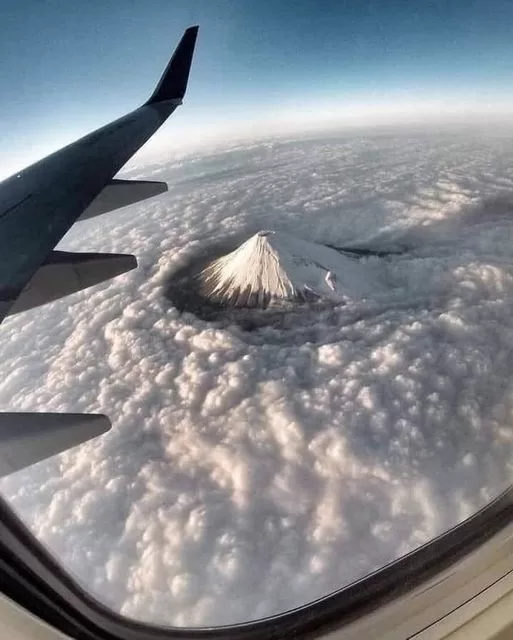
“By strongly promoting comprehensive safety measures for climbing Mount Fuji, we will ensure that Mount Fuji, a treasure of the world, is passed on to future generations,” said Koutaro Nagasaki, governor of Yamanashi Prefecture.
A gate system will be installed at the start of the Yoshida trail to monitor traffic and collect the climbing fees between 3AM and 4PM daily during the summer season.
Those with reservations at mountain huts will be exempt from the 4,000 person daily cap.
Reddit Reacts
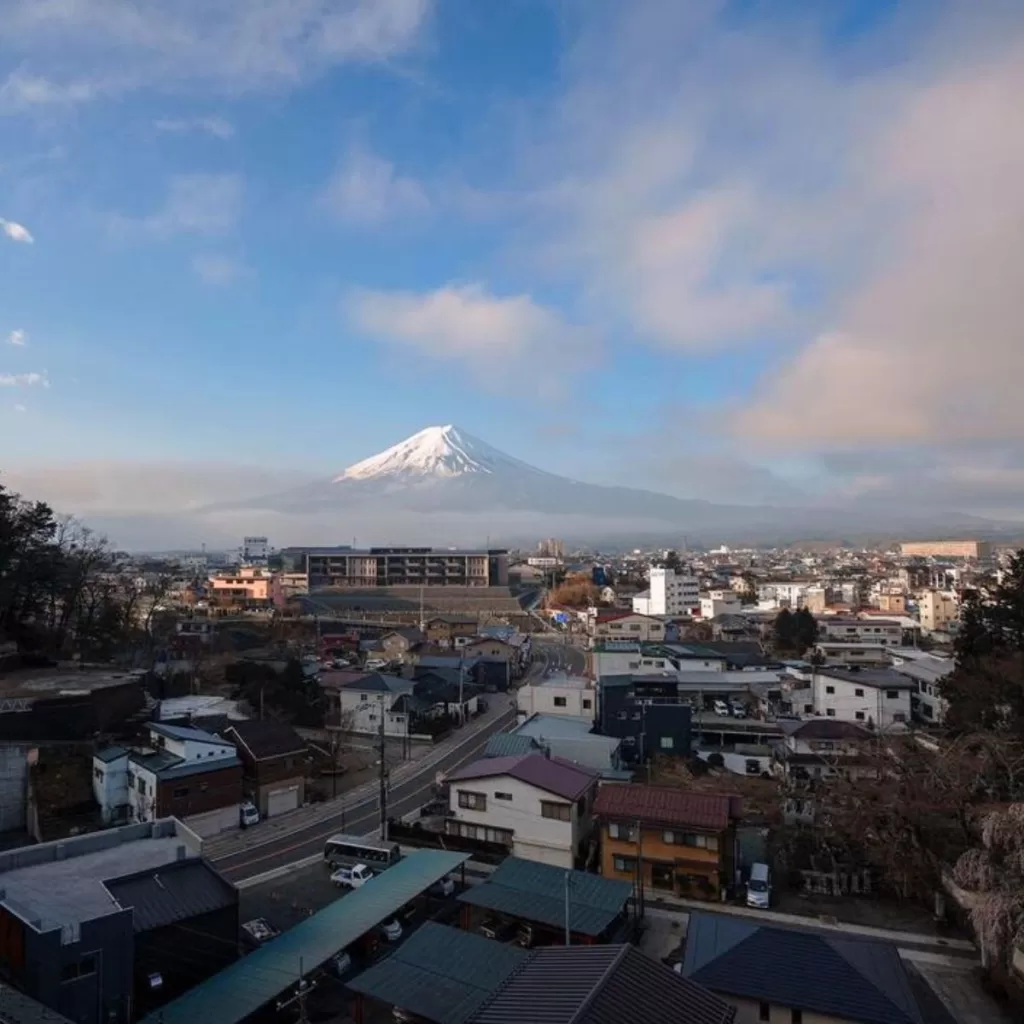
The announcement on Reddit drew a range of reactions from the community. Many welcomed the move as a necessary step to protect the iconic mountain:
“Good – this is how we protect nature…I wouldn’t say that was the point on an institutional level. Like, the individual huts of course make money from the stamps, noodles, and alcohol. Conservation money was always optional. Now, if conservation money is not optional, I think now it’s a for profit endeavor.” -u/vagabending, u/hellequinbull
Others felt the ¥2,000 fee was too low to significantly deter visitors:
“2,000 yen is going to do nothing. Make it 20,000 yen for tourists, free for taxpayers.” -u/nowaternoflower
“¥2000??? They’ll just have the same amount of tourists but suddenly be flush with hundreds of millions of yen LMAO.” -u/hellequinbull
Some redditors shared experiences of unprepared climbers putting themselves at risk:
“The problem is a lot of tourists don’t prepare well or dress appropriately when climbing Mt. Fuji. They think it’s a casual walk uphill and wear shorts and light clothes. And by the time they get past the 3rd station or higher, they start to freeze to hypothermia levels.” -u/GlobalTravelR
Looking Ahead
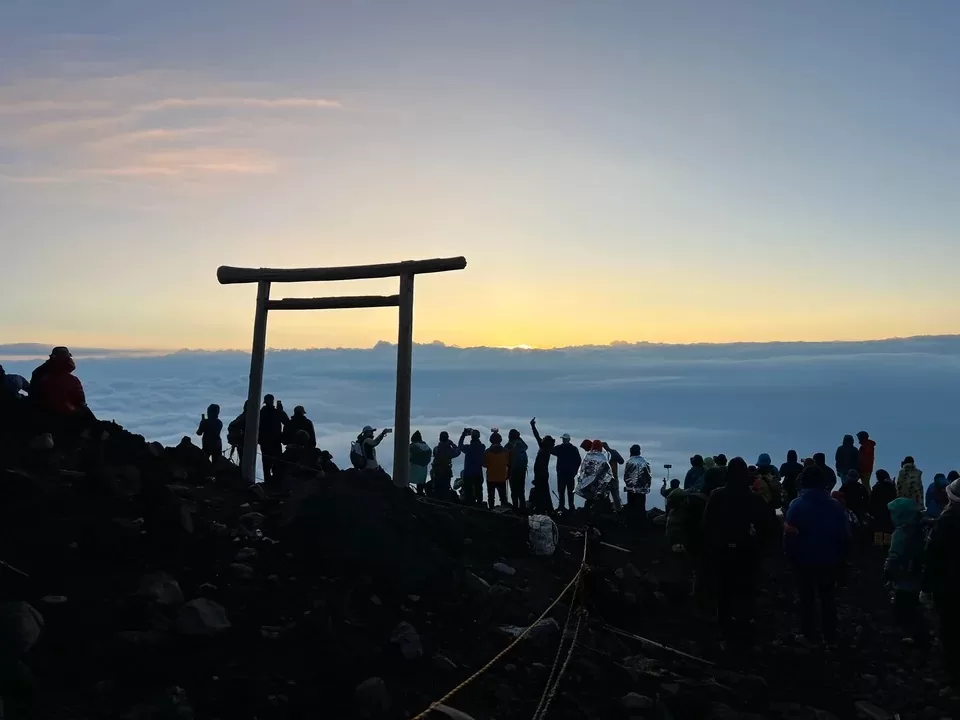
Whether the new fee and cap will be enough to curb overcrowding on Mount Fuji remains to be seen. Climbing seasons after the rules go into effect on July 1st will determine if additional measures are needed to protect this natural wonder.
Japan has also recently increased prices for its popular JR Rail Pass and launched a new digital nomad visa program in an effort to manage overtourism.
To counter overtourism, Gion District in Kyoto has also banned tourists in certain alleys starting in April 2024.
As global travel continues rebounding, finding sustainable solutions will be key for the country’s most iconic destinations.
I think Japan is just using this as an opportunity to exploit tourists. Shame on you Japan. As for the tourist that can’t put rubbish in the bin. It would be interesting to see how you would feel if I came to your home and dumped trash all over your place. Show some respect ya grubs.